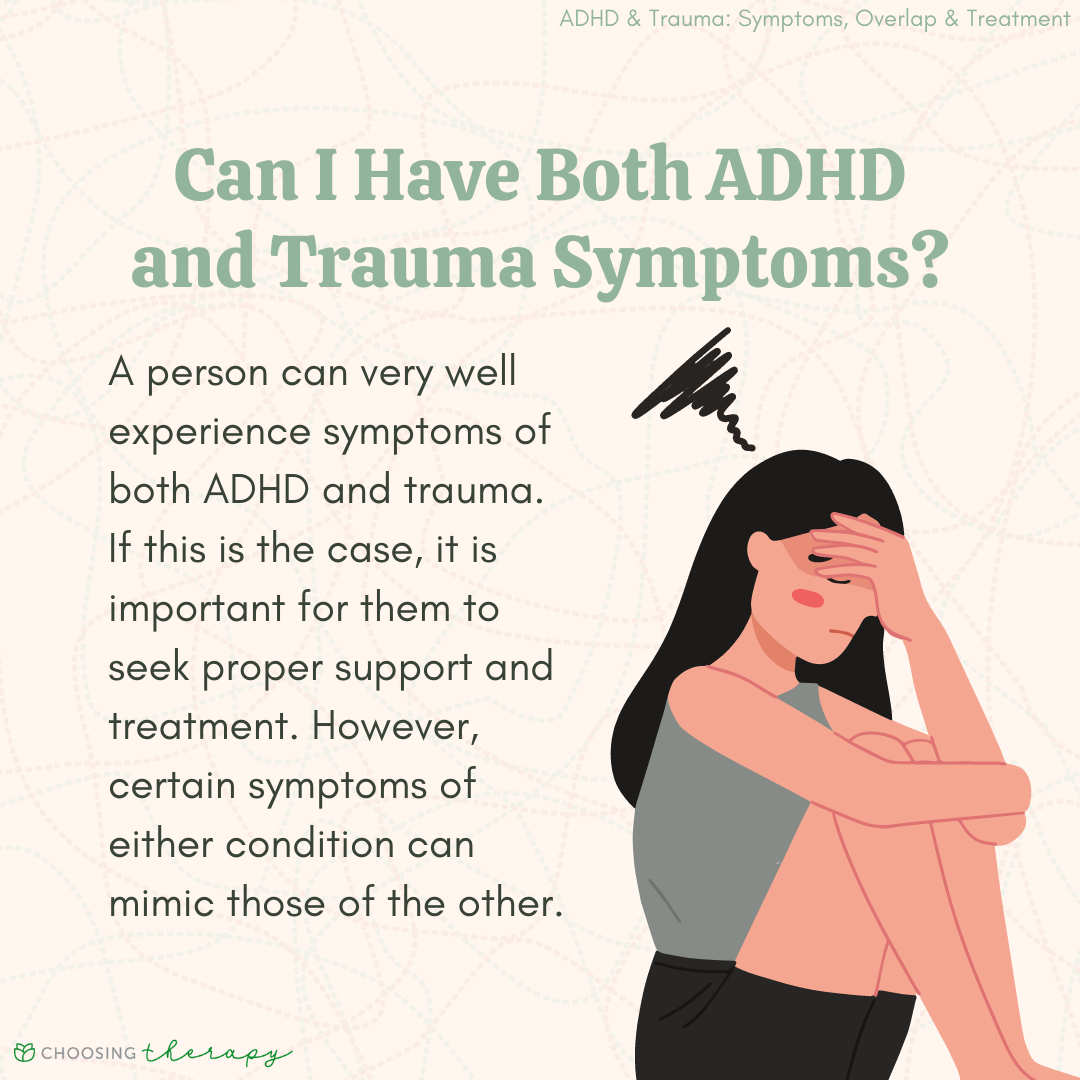Adult ADHD: From Suspicion To Support

Table of Contents
Recognizing the Signs of Adult ADHD
Adults with ADHD often present with symptoms that differ from those seen in children. While hyperactivity might be less pronounced, symptoms like inattentiveness, impulsivity, and difficulty with organization often dominate. Recognizing these signs is the crucial first step towards seeking help. A thorough self-assessment, using an ADHD checklist for adults, can be helpful but shouldn't replace a professional evaluation.
Common Adult ADHD Symptoms:
- Difficulty focusing and sustaining attention: Struggling to concentrate on tasks, easily distracted by irrelevant stimuli, and frequently losing your train of thought. This can manifest as difficulty completing work projects, reading books, or even watching television.
- Problems with organization and time management: Chronic disorganization, missed deadlines, and challenges prioritizing tasks. This often leads to feeling overwhelmed and frustrated.
- Impulsivity and difficulty controlling emotions: Acting without thinking, making rash decisions, and experiencing intense emotional reactions. This can impact relationships and career prospects.
- Restlessness and difficulty sitting still: A constant feeling of needing to move, fidgeting, and difficulty remaining seated for extended periods.
- Procrastination and poor planning: Delaying tasks even when aware of potential negative consequences, and struggling to plan ahead. This often creates a cycle of stress and frustration.
- Forgetfulness and losing things frequently: Misplacing belongings, forgetting appointments, and struggling to remember important details.
- Difficulties with relationships and work: Challenges maintaining relationships due to impulsivity or poor communication, and difficulty succeeding at work due to organizational and focus issues.
Seeking Professional Evaluation for Adult ADHD
A proper ADHD assessment is vital for accurate diagnosis and appropriate treatment. It's crucial to seek help from a qualified healthcare professional who specializes in ADHD in adults. This could be a psychiatrist, psychologist, or neuropsychologist. They'll conduct a comprehensive evaluation, usually involving several steps:
- Finding a qualified healthcare professional: Look for professionals experienced in diagnosing and treating adult ADHD. Check their credentials and read reviews.
- Understanding the diagnostic criteria for ADHD: Familiarize yourself with the DSM-5 criteria for ADHD to understand what constitutes a diagnosis.
- Preparing for your assessment appointment: Gather information about your symptoms, family history of ADHD, and any relevant medical information.
- What to expect during the evaluation process: The assessment may involve questionnaires, interviews, and possibly neuropsychological testing to evaluate cognitive abilities.
- Discussing treatment options with your doctor: After the diagnosis, your healthcare provider will discuss the available treatment options and create a personalized treatment plan.
Available Treatment Options for Adult ADHD
Treatment for adult ADHD is multifaceted and typically involves a combination of approaches. There isn't a one-size-fits-all solution, so finding the right combination often requires trial and error under the guidance of your healthcare provider.
- Medication management: Stimulant and non-stimulant medications are commonly prescribed to help manage ADHD symptoms. It’s crucial to discuss potential side effects and monitor the effectiveness of medication closely with your doctor.
- Therapeutic interventions: Cognitive Behavioral Therapy (CBT) and other behavioral therapies can help develop coping mechanisms and strategies for managing ADHD symptoms.
- Lifestyle changes: Making changes to your diet, exercise routine, and sleep hygiene can significantly impact your ability to manage ADHD symptoms. Improving sleep is especially important.
- Support groups and peer support: Connecting with others who understand the challenges of living with ADHD can provide invaluable emotional support and practical advice.
- ADHD coaching: A coach can provide personalized guidance and support to help you develop strategies for managing daily life and achieving your goals.
Building a Support System for Managing Adult ADHD
Living with ADHD requires a strong support system. This involves not only professional help but also a network of family, friends, and colleagues who understand and support your needs.
- Talking to family and friends about your diagnosis: Sharing your diagnosis can improve understanding and facilitate their support.
- Finding support groups or online communities: Connecting with others facing similar challenges can reduce feelings of isolation and provide valuable support.
- Advocating for accommodations at work or school: This might involve requesting flexible work arrangements, assistive technologies, or other adjustments to support your needs.
- Utilizing assistive technologies: Apps and tools can aid with organization, time management, and task completion.
- Practicing self-compassion and self-care: Prioritizing self-care activities is essential for maintaining well-being and managing the challenges of ADHD.
Conclusion
The journey from suspecting Adult ADHD to receiving support involves several key steps: recognizing symptoms, seeking professional evaluation, exploring treatment options, and building a supportive network. Early intervention is crucial. Remember, effective management of Adult ADHD is possible. A combination of medication, therapy, and lifestyle adjustments can significantly improve your quality of life. Don't let the challenges of Adult ADHD define you. If you suspect you might have Adult ADHD, take the first step towards support. Schedule a consultation with a healthcare professional to discuss your symptoms and explore appropriate diagnosis and treatment options for Adult ADHD. Don't hesitate to seek help; managing Adult ADHD is possible with the right support and strategies.

Featured Posts
-
 Securite Routiere Les Glissieres Une Solution Efficace Pour Reduire La Mortalite Routiere
Apr 30, 2025
Securite Routiere Les Glissieres Une Solution Efficace Pour Reduire La Mortalite Routiere
Apr 30, 2025 -
 Watch Ru Pauls Drag Race Season 17 Episode 6 Online Free And Cable Free
Apr 30, 2025
Watch Ru Pauls Drag Race Season 17 Episode 6 Online Free And Cable Free
Apr 30, 2025 -
 Free Streaming Options For Ru Pauls Drag Race Season 17 Episode 6 No Cable
Apr 30, 2025
Free Streaming Options For Ru Pauls Drag Race Season 17 Episode 6 No Cable
Apr 30, 2025 -
 Ekspertno Mnenie Prof Iva Khristova Za Gripnata Vlna
Apr 30, 2025
Ekspertno Mnenie Prof Iva Khristova Za Gripnata Vlna
Apr 30, 2025 -
 Ru Pauls Drag Race Live Celebrates 1 000th Show With Live Broadcast
Apr 30, 2025
Ru Pauls Drag Race Live Celebrates 1 000th Show With Live Broadcast
Apr 30, 2025
Latest Posts
-
 Akhbar Srf Rwatb Abryl 2025 Melwmat Mwthwqt Wmsadr Rsmyt
Apr 30, 2025
Akhbar Srf Rwatb Abryl 2025 Melwmat Mwthwqt Wmsadr Rsmyt
Apr 30, 2025 -
 Mwed Srf Rwatb Abryl 2025 Thdythat Wtwqeat Rsmyt
Apr 30, 2025
Mwed Srf Rwatb Abryl 2025 Thdythat Wtwqeat Rsmyt
Apr 30, 2025 -
 Federal Funding Cuts Devastate Trump Country
Apr 30, 2025
Federal Funding Cuts Devastate Trump Country
Apr 30, 2025 -
 Richmond Court Case Sentence Handed Down In Gun And Child Incident
Apr 30, 2025
Richmond Court Case Sentence Handed Down In Gun And Child Incident
Apr 30, 2025 -
 Kl Ma Tryd Merfth En Srf Rwatb Abryl 2025 Fy Almmlkt
Apr 30, 2025
Kl Ma Tryd Merfth En Srf Rwatb Abryl 2025 Fy Almmlkt
Apr 30, 2025
